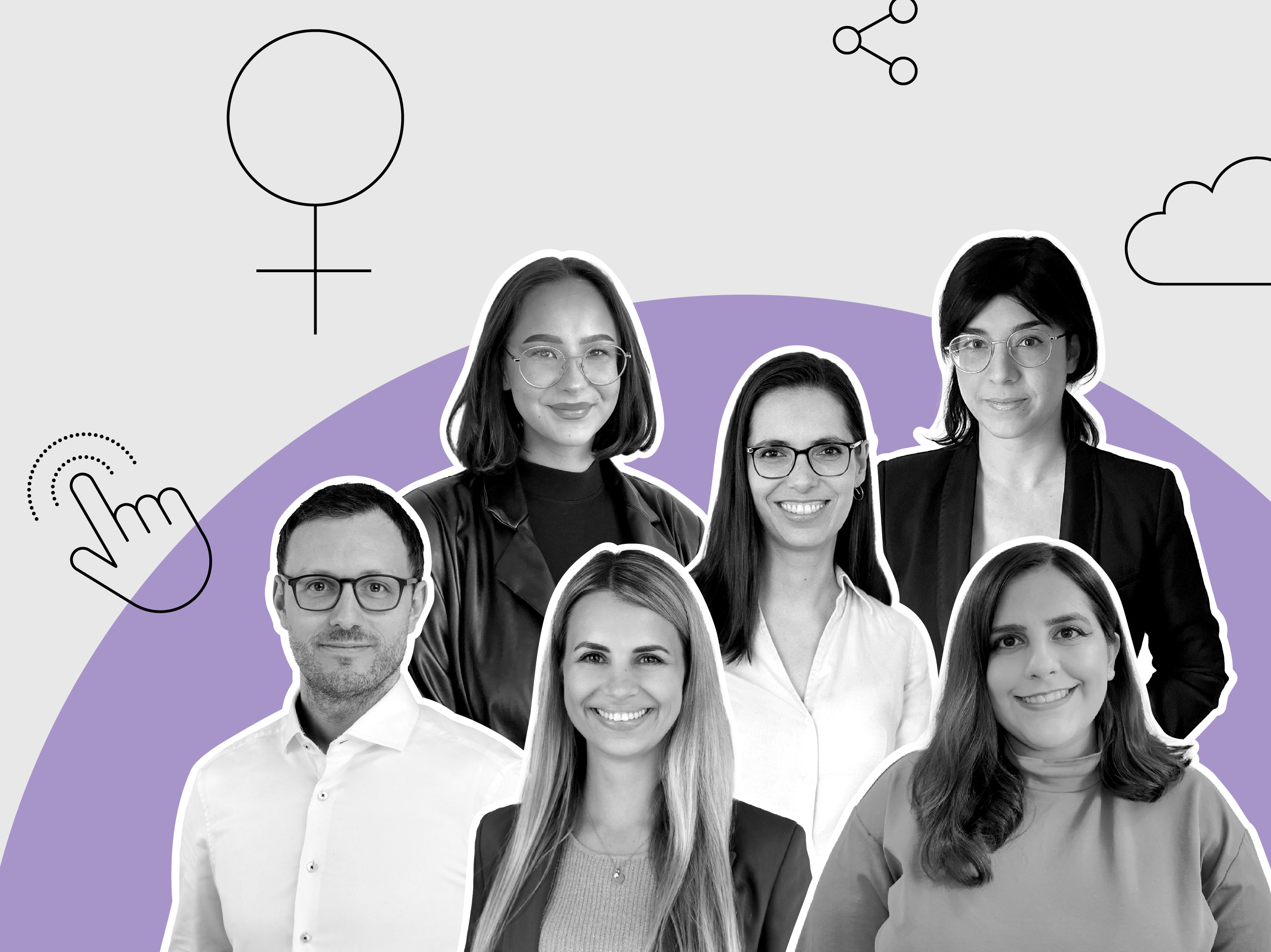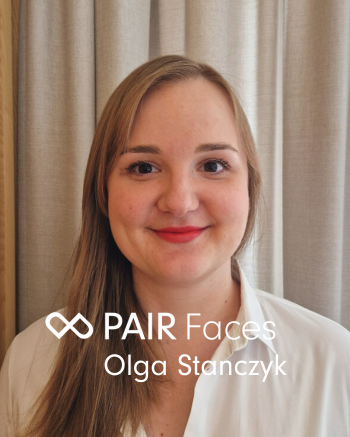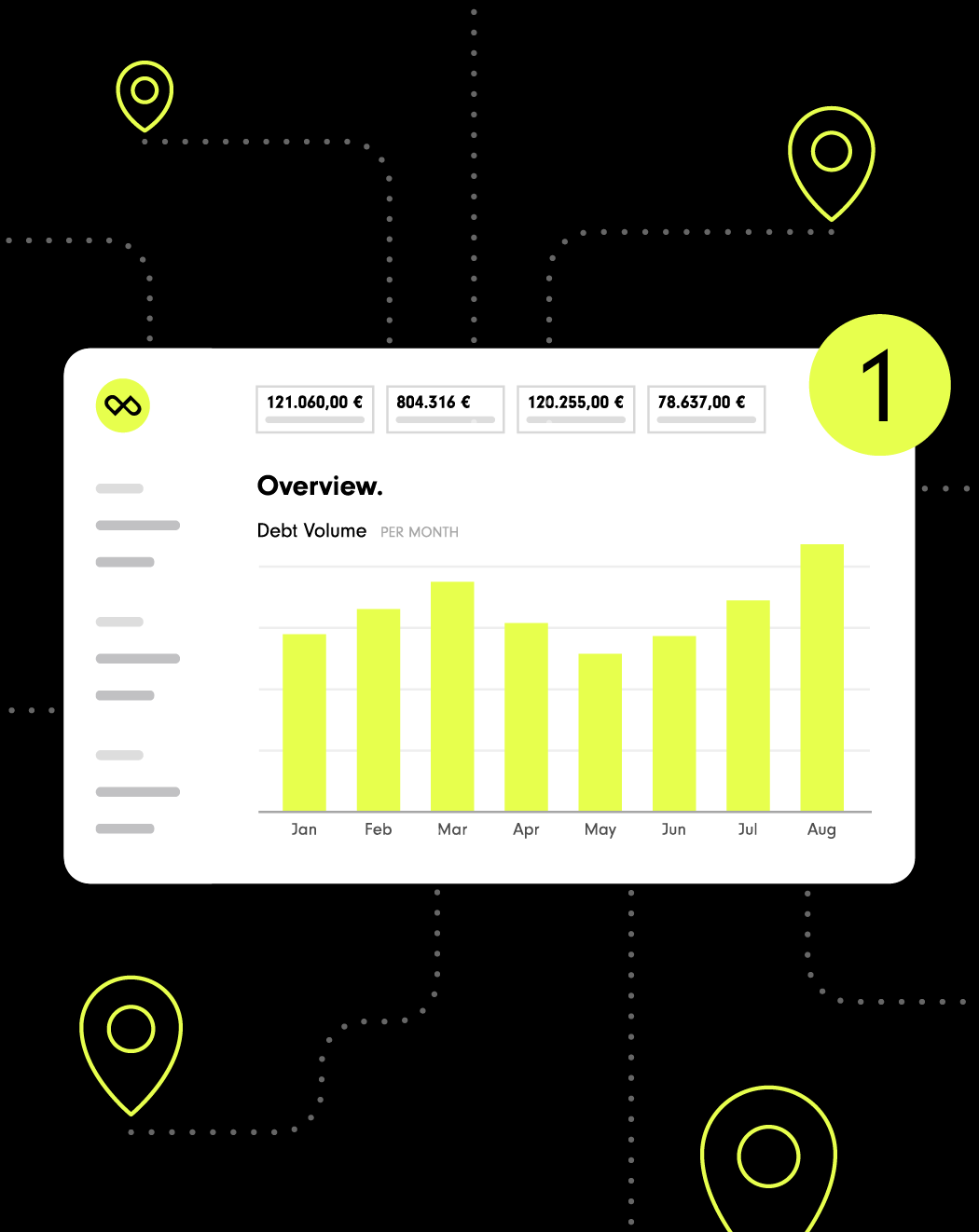For more than a hundred years, the International Women’s Day has set an example for women’s rights and gender equality. This year, the official motto of the United Nations is “DigitALL: Innovation and technology for gender equality”. Because whether it’s computer science, virtual reality or artificial intelligence – women have made an immeasurable contribution to the digital world we live in today. This is exactly what the motto #DigitAll is meant to celebrate. Yet far fewer women have access to technology and women are still underrepresented in STEM professions. This year, we took 8 March as an opportunity to talk to six colleagues about their opinions and personal experiences.
We interviewed:
- Sajjal Malik, Business Intelligence Engineer
- Daniela Gaub, General Counsel & Head of Legal
- Liva Zepa, Director Innovation, and Sebastian Clajus, Team Lead Behavioural Science
- Maria Korda, Product Manager, and Franziska Gibert, Working Student Behavioural Science
Sajjal Malik

Where do you see equality for women in tech in 2023?
Sajjal: Equality is something I vouch for. It can apply to all genders, regardless of their marital status, number of children, etc. Women are still seen as the ones who take care of children and elders in many aspects of life around the world. Therefore, it is assumed that they would not be able to work the required hours. However, their enablement is necessary so they can succeed in the tech sector. In my personal experience, more tech companies today are focusing on diversity and inclusion and making sure they have an equal ratio of women and men in the workplace. When you are not outnumbered, that is when you truly feel equally represented. Tech is no longer a world for men only! As a BI engineer, I love how people from different academic backgrounds can tell amazing stories without their gender stopping them from showing what they really have to say.
Tech is no longer a world for men only!
Sajjal Malik.
You support other women who want to enter the tech industry. How do you do that and what motivates you the most?
Sajjal: In Pakistan, where I come from, the majority of women do not believe in themselves. The Imposter Syndrome is pervasive and it causes women not to believe in themselves. Because of my gender, my abilities have always been questioned. My professional opinion was hushed up and my professional engagement was determined by my personal life status (e.g. married/mother etc.). Thanks to my former employer, I feel honoured to belong to a circle of educated women in the Middle East and South Asia. Their trust in me has motivated me to help them understand their circumstances and current goals. I try to find solutions to realise their academic or professional dreams. More generally, I counter-read CVs and help women bring out the best in job interviews.
Do you have a career tip you would like to share with young BI engineers?
Sajjal: Yes! Perfection is the enemy of finishing. Put your first drafts out for review and always keep the end user in mind. Also, always be open to feedback. Our work can always be improved. There is a quote that says: “Knowledge increases by sharing”. Do your best to share your knowledge and you will learn more in return.
What is your vision for an equal future?
Sajjal: None of us will ever have the most ideal circumstances, but hard work always helps to achieve what you believe in. That’s the only way to get where you want to be.
Daniela Gaub

You support other women as a mentor. What does your mentoring work look like?
Daniela: I have already had a few different types of mentoring, but so far I have always been able to support women who were at the beginning of their careers after graduation. With my first mentee, for example, the focus was on being a sparring partner for her career orientation. I successfully accompanied her on the path to her dream job as a management consultant. Another great young woman asked for advice on how to react in certain situations as a young lawyer in a very male-dominated law firm and how to stay with herself. I was also able to help her with my experience. Another time, I realised at the beginning that I could not provide the mentee with the support she needed with her current questions. That is also part of mentoring: If necessary, refer to other paths or other mentors if you notice that the upcoming mentoring would not bring (much) added value for the person.
I would have loved to have had a role model or mentor at the beginning of my professional life who would have accompanied me regularly and intensively during my start. It’s nice to be able to be that person for others.
Daniela Gaub.
What motivates you to support others and pass on your knowledge?
Daniela: At the beginning of my professional life, I would have loved to have a role model or a mentor who accompanied me regularly and intensively during my start. I more or less learned to “swim in cold water”. That worked well, but I could have avoided some bumpy roads and been much more self-confident earlier on. If others can skip this phase through mentoring and the insight into the mentor’s experience and find “their” way more quickly, then I am happy every single time. Over time, I have also found very valuable people who advise me when needed. I would also like to share this good fortune of having someone “one step above”, whose wealth of experience and objective viewpoint I can fall back on. It is nice to be able to be that person for others.
What experiences have you had through mentoring in your career?
Daniela: I have never participated in a mentoring programme as a mentee, but have found my mentors through my profession, who have empowered me and continue to do so. In my work at the association, there were two people who particularly challenged and supported me. It’s great to know that we can always give each other feedback. Not so long ago, I met another person who plays an advisory role for me and from whom I always receive support. And, perhaps most importantly, my husband has always been supportive of me and my plans. He is the one who encourages me to try new things, always wants my best and holds a mirror up to me whenever necessary. So he does exactly what makes a very good mentor.
What about equality in the legal sector today and what would you like to see in the future?
Daniela: From my point of view, a job like the one I have only works well if one partner can organise their own time very flexibly and does not work full-time 40 hours a week – no matter what gender the person is. I see in my circle of friends what kind of stress there is when both partners in a relationship work full time and also have children. As a parent, you want to be involved in your children’s lives and pursue a hobby. In my view, you have to be able to “afford” a balance between family life, leisure time and work, and you also have to make certain sacrifices. A family model like the one I am allowed to live is only found in a few places. But I see it more and more often among lawyer friends. So something is happening.
Recently, however, I attended a dinner with many general counsels from other companies. The “women’s quota” was again very sobering: of about 25-30 people, four were women, including me. I hope that this will change in the coming years. Because different perspectives help to create an outstanding product – be it software, AI or comprehensive legal advice!
Liva Zepa and Sebastian Clajus


How can managers encourage each person individually, regardless of gender or origin?
Liva: Supporting diversity and individuality from my side means that all team members have equal opportunities and resources, but individual needs are strongly respected. Flexibility is a huge and significant part of that and I try to accommodate the individual needs of each team member. Having this flexibility and freedom also means that they can explore their own ways of completing their tasks and achieving the goals. This is because I want everyone on the team to feel free to contribute their own ideas and at the same time take ownership.
Sebastian: I think you first have to accept that everyone has different goals and a different style of achieving those goals. Some place great value on a quick career boost, others want a good work-life balance. Both are legitimate for now. I try to have very regular one-on-one conversations with everyone in my team to find out what is important to them and what hurdles they are currently facing (e.g. in self-organisation or family challenges, etc.). In my view, you can only provide individual support if you understand (at least to some extent) what challenges someone is facing.
Supporting diversity and individuality from my side means that all team members have equal opportunities and resources, but individual needs are strongly respected.
Liva Zepa.
What is particularly important to you in the joint cooperation with colleagues?
Liva: To me trust and open communication are at the top of the list. And it always works both ways – I strive to be reliable and consistent from my side and hope my colleagues respond the same way. My goal is to have a safe environment that fosters new ideas and learnings, and also that we have trust in the way that we can constantly be learning together from our mistakes and failures and thus continuously advance our professional growth and development individually and as a team.
Sebastian: Apart from the personal level, the classics are actually: trust, tolerance, openness – but I also find humour important (also good as a catalyst for stress!).
What can everyone do as an individual to live equality?
Liva: I think one point is that we all have unconscious biases. These need to be recognised and acknowledged before they can be effectively avoided. Also we have to be more proactive – you cannot simply follow the rules if you think they are wrong, create unintentional bias or lead to some groups being treated less favourably than others. Instead, we can work more proactively to change the situation. If no one steps up to change the status quo, these unconscious biases will continue to dictate our workplaces and communities. And also very simple – let’s be more kind and respectful towards each other. Small things can make a big difference.
Sebastian: In terms of equal rights for women and men: I think everyone should first admit that there is still structural and cultural inequality in Germany. That helps to recognise it – also in professional life. In addition, every individual can and should clearly confront everyday sexism. I would like to pass on to my little daughter that she does not have to conform to any stereotype and that all doors are open to her.
I would like to pass on to my little daughter that she does not have to conform to any stereotype and that all doors are open to her.
Sebastian Clajus.
Maria Korda and Franziska Gibert


You have changed teams and positions within PAIR Finance – how did this happen?
Maria: In my first two years at PAIR Finance, I was a Quality Assurance Engineer. This gave me a very good understanding of our app and I was able to dive deep into AI topics. Today, I’m a Product Manager in the AI Squad, the team at PAIR Finance that works on AI projects that we apply to digital receivables management. So when PAIR was looking for a Product Manager last summer, my colleagues encouraged me to apply. The support from the team and the fact that I already knew all the projects very well helped me a lot.
Franziska: I have been with PAIR Finance since October 2020 and started in the Collection Team. I was able to immerse myself in many topics and work in a great team with a lot of personal responsibility. As time went by, I longed for a job that would fit better with my German studies. I then saw that we were looking for a working student in the field of copywriting at Behavioral Science and sought out the conversation with my team lead at the time, Philipp. He supported me in my plans on the same day, promised me his support and set everything in motion to make the change possible. This also confirmed to me that personal and professional development is important at PAIR.
I believe there are many ways to promote equality in the workplace and I’m happy that PAIR Finance is really engaged on this topic.
Maria Korda.
Is equality important to you in terms of flexibility in your job?
Maria: Equality is the basis for successful teams. Everyone should feel comfortable in their company, be valued by their colleagues and have the opportunity to develop flexibly. Characteristics such as age, disability, gender reassignment, marriage and civil partnership, pregnancy and maternity, religion or belief, sex and sexual orientation should not play a role and certainly not limit you. However, this must also be lived: Offer to support another team member when they are overloaded, help take over a colleague’s work while they are on leave and do not contact the person during this time. Respect the possibility to work from home and help your colleagues to better balance work and private life. These are core values that need to be offered equally to all colleagues.
Franziska: Equality in the job is essential in every respect. At PAIR, it doesn’t matter what gender you are. Everyone has the same opportunities. In my working student position, I have been able to participate in many meetings, accompany processes and also contribute ideas. Even though I’m often only there 20 hours a week, I always get the feeling of being a full team member. At the same time, the company also takes into account the fact that I study at the same time and therefore have important exams and study phases. With the right communication and a certain amount of advance planning, PAIR has already supported me in many situations during my studies.
Flexible working time models, independent work as well as further education and training in professionally relevant topics can contribute to equality in the workplace.
Franziska Gibert.
How can companies actively contribute to promoting equality for women in the workplace?
Maria: Reading the 2022 statistics, it is certain that inequality in terms of pay and opportunities persists globally. I believe that there are many ways to promote equality in the workplace and I am very glad that PAIR Finance is really committed to this. For example, since I’m working with PAIR, the percentage of women colleagues has greatly increased, in all departments and also in Tech/ Product, where it’s most difficult.We also have many ongoing initiatives such as “Mother evenings” and “work-life balance” sessions. Additionally, some ideas to promote equality would include mixing teams, recognising holidays from all cultures, promoting pay, hiring and development equity, and introducing optional diversity training to help employees understand cultural differences.
Franziska: Companies can actively contribute to women not being underrepresented by living equal opportunities in everyday working life, so that everyone has the opportunity to develop freely and be promoted professionally. Flexible working time models, independent work as well as further education and training in professionally relevant topics can contribute to equality in the workplace. The values of a company should also be recognisable in the working atmosphere.



